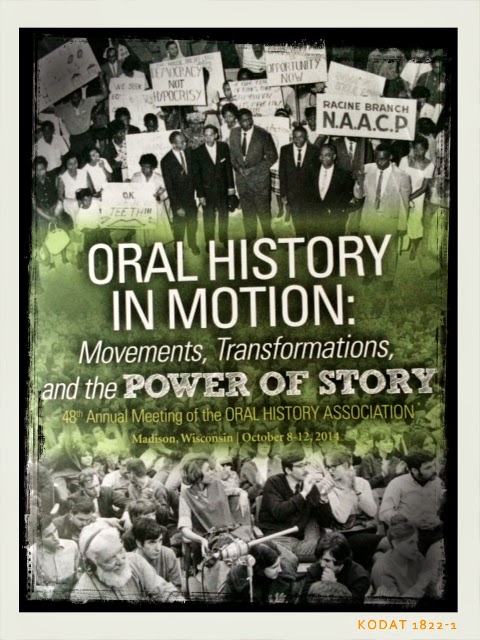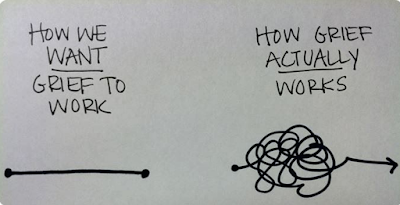Kavanaugh: This Was No Witch Hunt
I recently wrote this piece in response to the comparisons of Kavanaugh's hearings to the witch trials in Salem in 1692 on behalf of Voices Against Injustice, a Salem-based nonprofit organization:
The winds of Salem are rising. From Canada’s Calgary Herald to Fox News, in blogs and tweets,
reporters, columnists and pundits have compared recent Senate hearings on the confirmation of
Supreme Court nominee Brett Kavanaugh to the witch trials that consumed Salem, Massachusetts
in 1692. Their claims, righteous and protective, defend Kavanaugh from his accusers and point to
a “witch hunt,” an hysterical web of conspiracy and lies.
Supreme Court nominee Brett Kavanaugh to the witch trials that consumed Salem, Massachusetts
in 1692. Their claims, righteous and protective, defend Kavanaugh from his accusers and point to
a “witch hunt,” an hysterical web of conspiracy and lies.
the political left. He is innocent, unjustly accused, caught in the turmoil of a political and cultural tempest
much like the victims of Salem. The notion that Kavanaugh is a victim has been splashed all over
media. These claims are unfounded and historically inaccurate. They are also deeply insulting to the
memory of those accused of witchcraft in 17th century Salem.
It is critical to never forget what happened in the small Massachusetts Bay Colony town.
much like the victims of Salem. The notion that Kavanaugh is a victim has been splashed all over
media. These claims are unfounded and historically inaccurate. They are also deeply insulting to the
memory of those accused of witchcraft in 17th century Salem.
It is critical to never forget what happened in the small Massachusetts Bay Colony town.
What happened in Salem looked nothing like the Kavanaugh hearings.
Historical consciousness matters.
Historical consciousness matters.
In Salem, the accused were going about their day-to-day lives. Kavanaugh, on the other hand, was
nominated for Supreme Court Justice, one of the most prestigious jobs in the nation and the world.
That position, which is for life, requires an irreproachable character. It is a not a “plus;” it is a requisite.
Any claims against Kavanaugh’s character are certainly relevant to the questions at hand and must not be
dismissed.
nominated for Supreme Court Justice, one of the most prestigious jobs in the nation and the world.
That position, which is for life, requires an irreproachable character. It is a not a “plus;” it is a requisite.
Any claims against Kavanaugh’s character are certainly relevant to the questions at hand and must not be
dismissed.
In Salem, the powerful attacked the powerless and vulnerable. Religious leaders, with strong ties to
those who wielded political power, laid accusations against suspected witches. The accused were
largely marginal figures, already considered troublesome, useless or both.
Kavanaugh is a person of privilege, backed by the most powerful and wealthiest men in the United
States.
those who wielded political power, laid accusations against suspected witches. The accused were
largely marginal figures, already considered troublesome, useless or both.
Kavanaugh is a person of privilege, backed by the most powerful and wealthiest men in the United
States.
In Salem, the accusers had something to gain and little to lose. Accusations were often the result of
longstanding interpersonal and community tensions. Alternately, accusations conveniently deflected
attention away from the accuser. In the Kavanaugh case, it is the opposite. Accusers have little if
anything to gain and a whole lot to lose by coming forward. They hold less power than the man
whom they are accusing. If women’s experience to date is any indication, their decision to come
forward will only hurt them.
longstanding interpersonal and community tensions. Alternately, accusations conveniently deflected
attention away from the accuser. In the Kavanaugh case, it is the opposite. Accusers have little if
anything to gain and a whole lot to lose by coming forward. They hold less power than the man
whom they are accusing. If women’s experience to date is any indication, their decision to come
forward will only hurt them.
There are, however, some striking parallels between the Kavanaugh case and the events of Salem.
The 17th century witch craze in New England took place within a context of misogyny. It fed on the
beliefs, widely held, that women were inherently dangerous, untrustworthy and hysterical creatures,
and as such, not fully adult. Similar presumptions, from “lying skanks” to “revenge-seekers” color
contemporary characterizations against those who have leveled accusations against Kavanaugh.
The assumption that women's memories cannot be trusted, as well, shapes current discourse.
Embedded in these portrayals of women accusers is indignation that a man like Kavanaugh might
ever be held accountable for his actions.The trials were inherently violent and must be understood
within a culture of violence against women and all vulnerable and marginalized people.
Kavanaugh’s entitlement and his rage at being asked to uphold basic precepts of due process reflect
a profound anger that lies just below the surface of American culture. The outbursts of the likes of
Lindsey Graham illustrate how easy it is for these to erupt.
beliefs, widely held, that women were inherently dangerous, untrustworthy and hysterical creatures,
and as such, not fully adult. Similar presumptions, from “lying skanks” to “revenge-seekers” color
contemporary characterizations against those who have leveled accusations against Kavanaugh.
The assumption that women's memories cannot be trusted, as well, shapes current discourse.
Embedded in these portrayals of women accusers is indignation that a man like Kavanaugh might
ever be held accountable for his actions.The trials were inherently violent and must be understood
within a culture of violence against women and all vulnerable and marginalized people.
Kavanaugh’s entitlement and his rage at being asked to uphold basic precepts of due process reflect
a profound anger that lies just below the surface of American culture. The outbursts of the likes of
Lindsey Graham illustrate how easy it is for these to erupt.
Finally, the events of Salem subsided for two reasons. Ordinary citizens began to interrupt
proceedings and the accusations came too close to those in power. Once Governor Phips’ wife Lady
Mary was accused of witchcraft, he and other powerful people in the colony quickly marshalled their
resources to put an end to the trials and executions. Phips issued an order declaring an end to
the proceedings of the court.
proceedings and the accusations came too close to those in power. Once Governor Phips’ wife Lady
Mary was accused of witchcraft, he and other powerful people in the colony quickly marshalled their
resources to put an end to the trials and executions. Phips issued an order declaring an end to
the proceedings of the court.
None of the pundits so quick to invoke 1692 have referred to these parallels.
Voices Against Injustice commissioned and maintains the Salem Witch Trials memorial,
honors the memory of those executed unjustly as a result of the witch hysteria in 1692 by
conferring an annual award to a present-day champion for social justice and works tirelessly to
uphold values of fairness, equality and compassion as the only antidotes to abuses of power today.
We invite you to learn more about us and nominate your hero at www.voicesagainstinjustice.org.
honors the memory of those executed unjustly as a result of the witch hysteria in 1692 by
conferring an annual award to a present-day champion for social justice and works tirelessly to
uphold values of fairness, equality and compassion as the only antidotes to abuses of power today.
We invite you to learn more about us and nominate your hero at www.voicesagainstinjustice.org.
Margo Shea, Ph.D. for Voices Against Injustice








Comments
Post a Comment